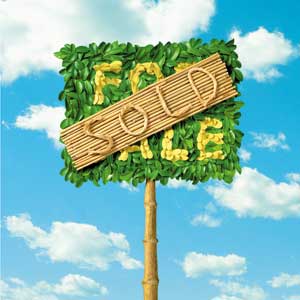If you live in Britain, seems you would be. The Waste and Resources Action Programme (WRAP – and why couldn’t we Americans have come such a lovely and clever acronym for a recycling effort?) surveyed more than 1,500 households across the Pond and found there were "four main barriers to recycling."
Respondents told surveyors they don’t recycle because it’s inconvenient, they’re too busy and they don’t know what can be recycled or not. Another reason cited was respondents’ “attitudes and perceptions towards the act of recycling.”
But most – 86 percent – said they would “be encouraged” to recycle if they “saw the practical impact of their efforts in the local area.”
Makes sense. After all, I’ll continue to cut back on my food intake if I see that the numbers on my bathroom scale are declining. I’ll keep going to the gym for some weight resistance training if I can easily heft the eight-pound box of detergent instead of huffing and puffing up my porch lugging the three-pounder. I’ll keep practicing my free throws if I see the ball swish through the hoop more often than not. In other words, if I see results I'll keep on doing what what I'm doing.
And I’ll bundle up my paper products and trundle the big blue recycling container to the curb more often if my local collector continues to let me know how many trees I saved by doing so.
However, over here in the States, it appears our enthusiasm for buying green ebbs and flows depending on how flush we feel budget-wise (thank you SustainableLifeMedia.com):
Going Green, an annual report examining how much consumers actually care about green issues,
indicates that Echo Boomers (ages 16-29) and GenXers (ages 30-43) are more concerned about
the environment compared to a year ago. But while interest in green issues continues to grow,
consumers' willingness to pay more for green alternatives has decreased, according to the
report.
Much as we “don’t” want to admit it, this makes sense: When things are tight, smart folks do think of cutting back and purchasing just the essentials. But that doesn’t mean green products are more expensive than other products – that just isn’t automatically so.

(Illustration by Holly Linden and courtesy ThisOldHouse.com)
But, switching gears to a more upbeat note, it appears that Realtors may now take a course that will help them understand green building, why building sustainable homes and office complexes is important, and that will allow them the opportunity to list and market green homes and buildings. The course is named the Green Designation Core Course.
To quote a line from the story: “This program is yet another indication that real estate investors see value in building – and buying – greener properties.”
Taking such a course could only serve to help a Realtor market and sell more properties. In this hyper-competitive real estate market, we certainly tip our hats to any enterprising Realtor who takes the initiative to study for that “green designation.”
[ add comment ] ( 46 views ) | [ 0 trackbacks ] | permalink |




 ( 3 / 770 )
( 3 / 770 ) 


 Looking for a Green Office Solution?
Looking for a Green Office Solution?